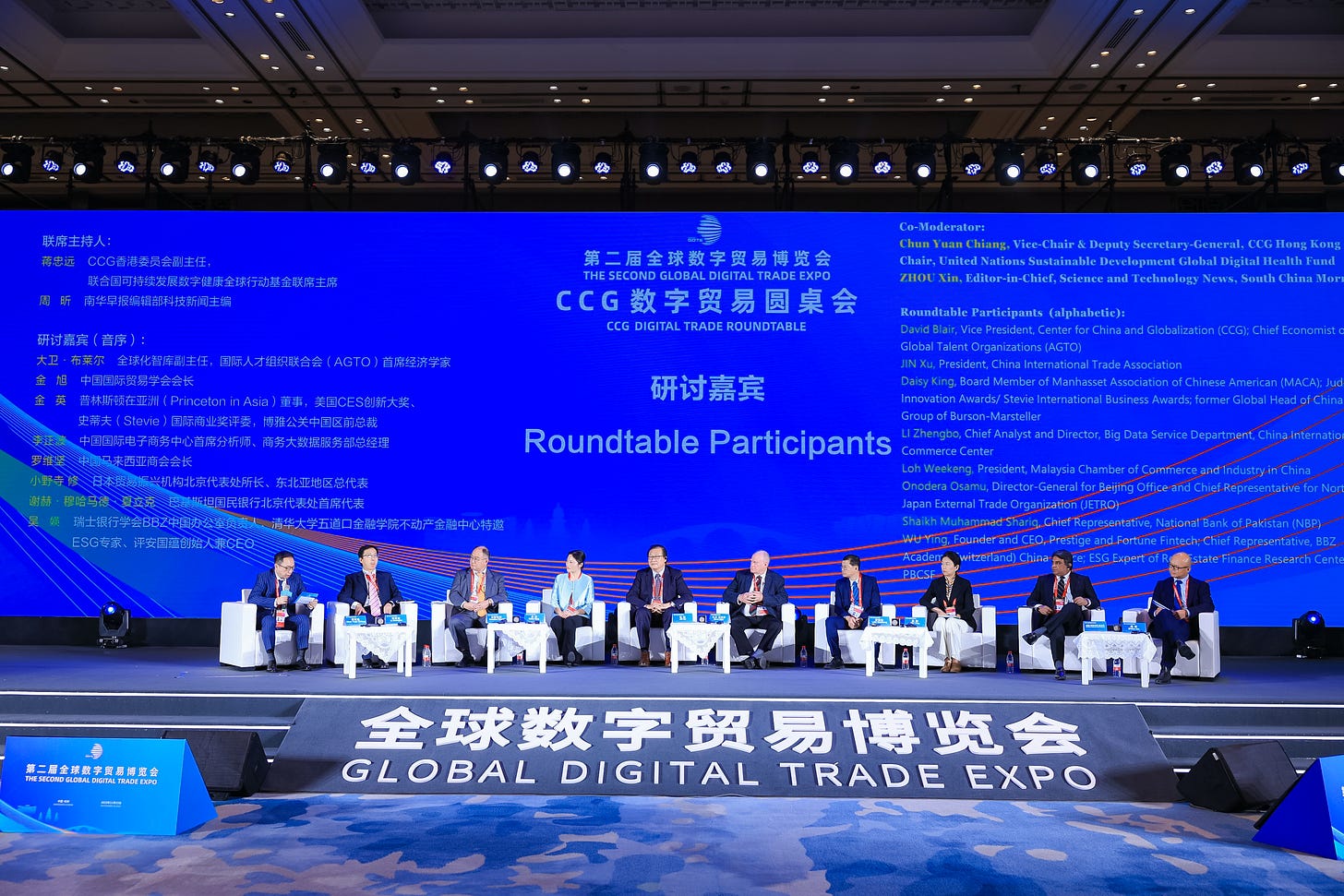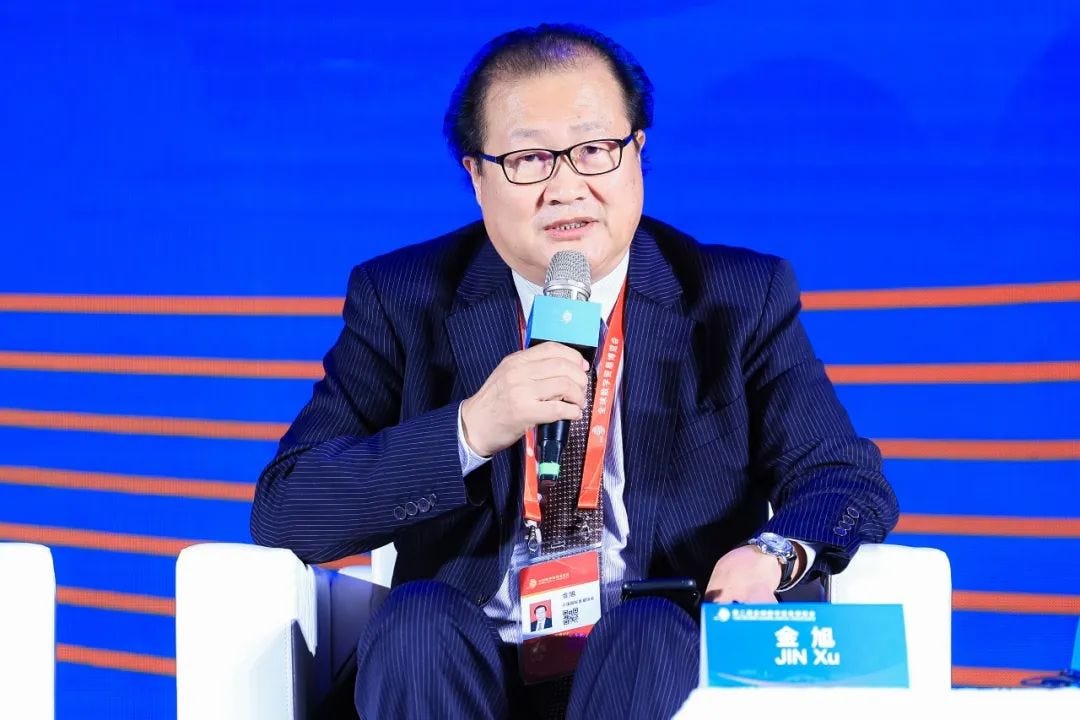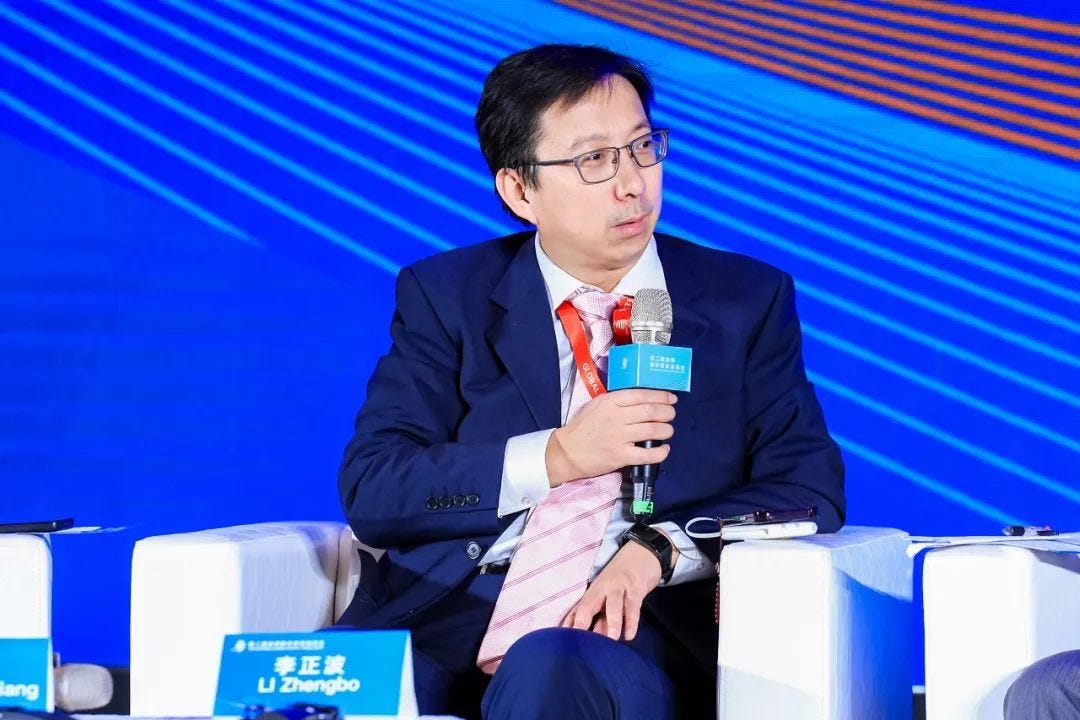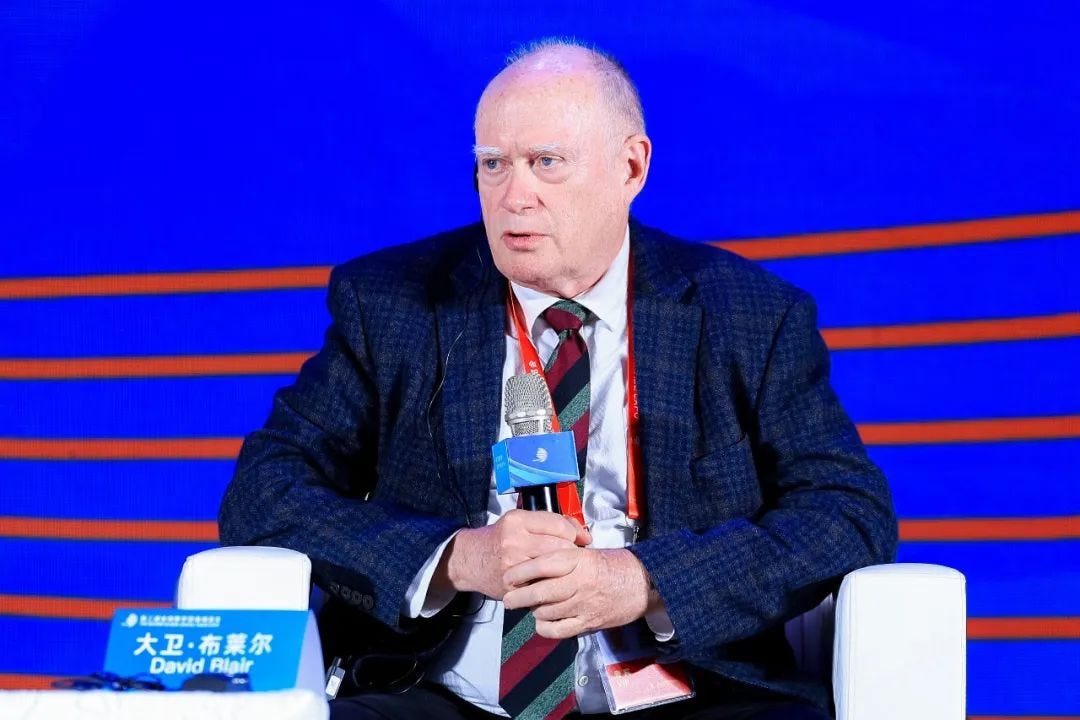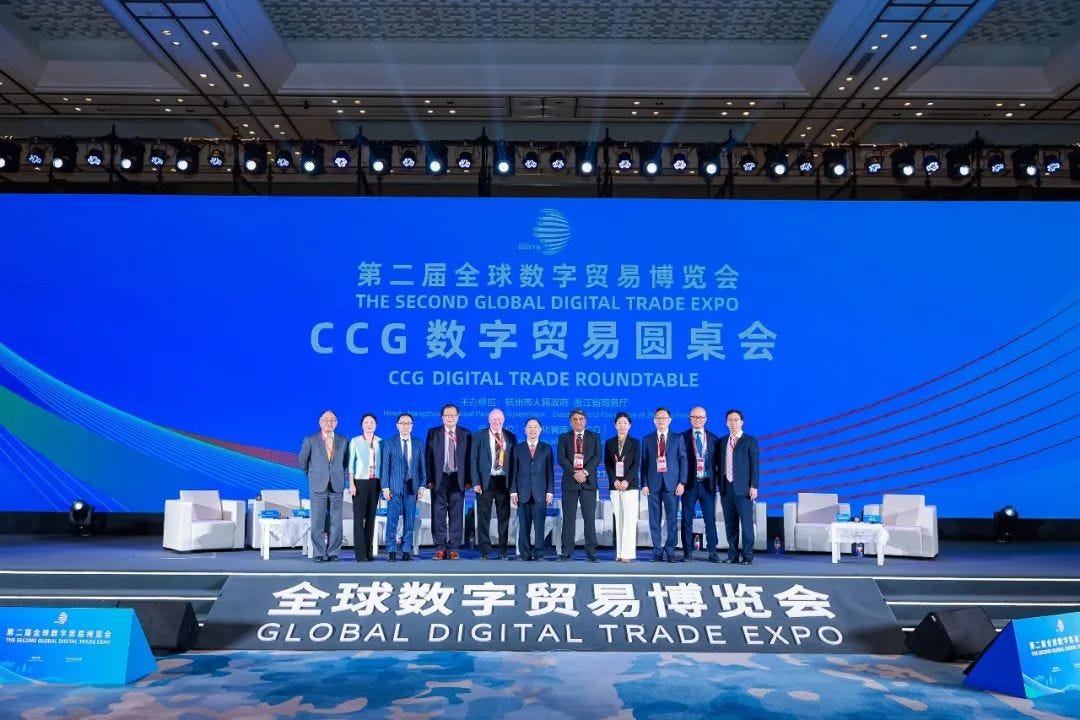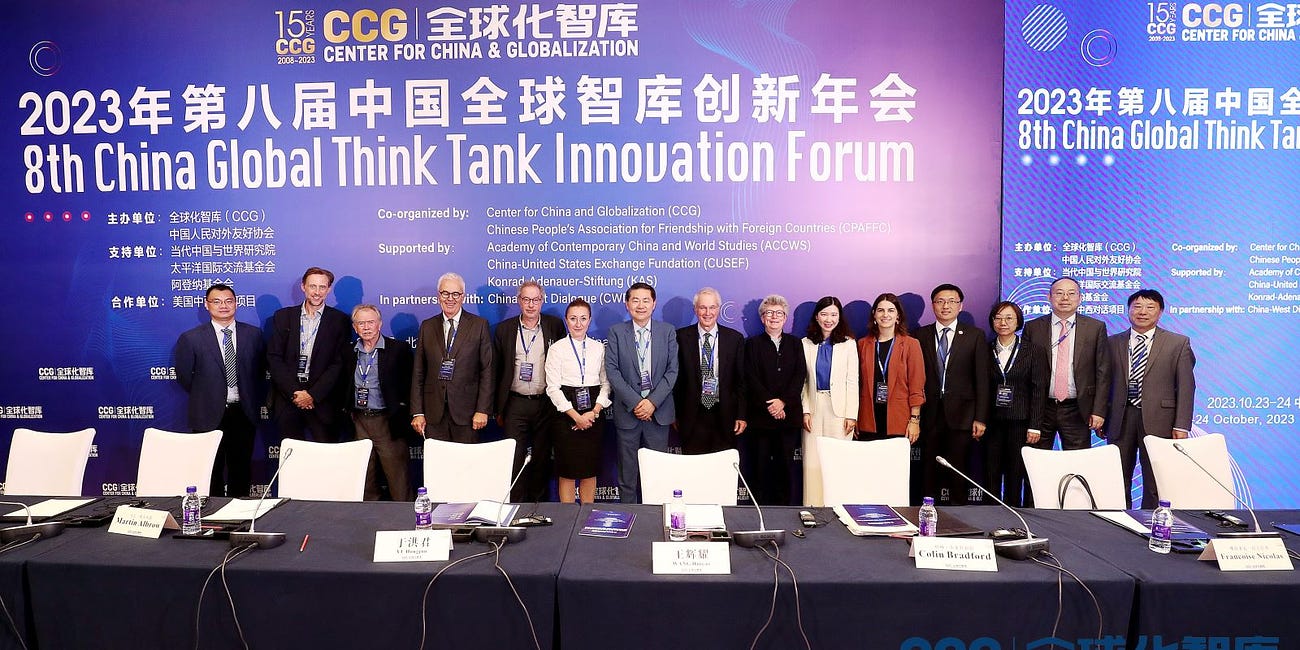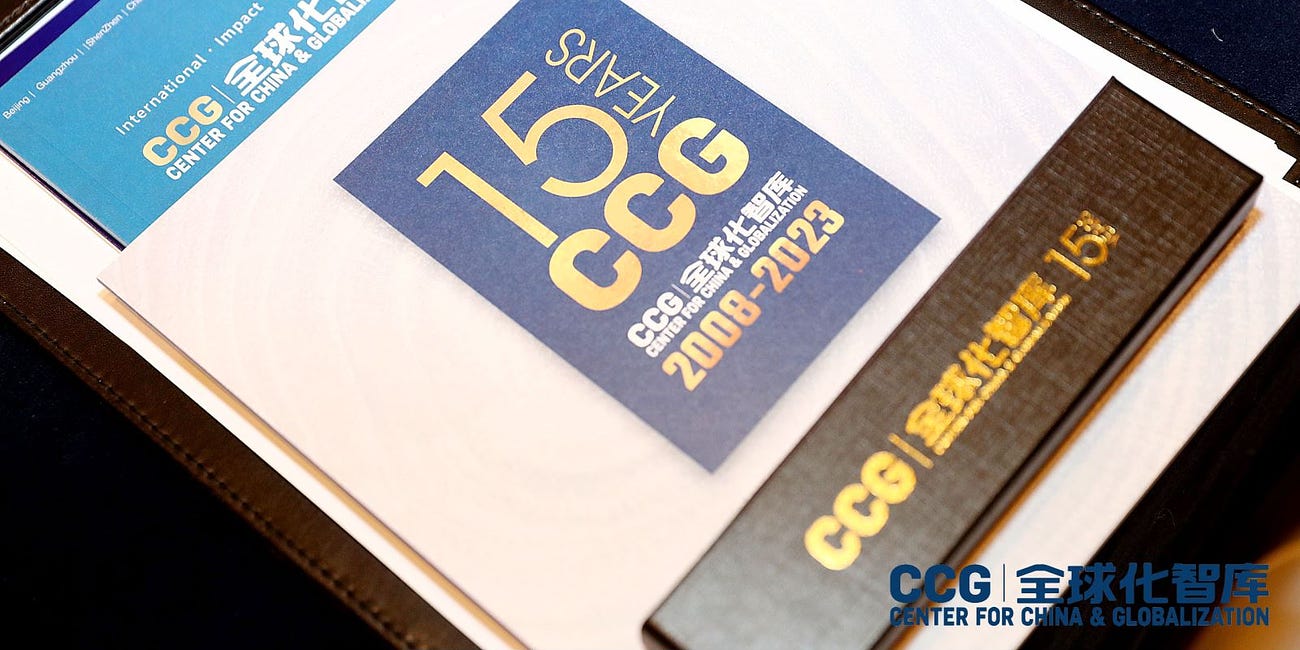Coping with the inevitable trend of digital trade: security, innovation, and regulatory sandbox
CCG hosts Digital Trade Roundtable at 2nd Global Digital Trade Expo
The Center for China and Globalization (CCG) was greatly honored to be part of the second Global Digital Trade Expo (GDTE), China's first national digital trade fair backed by the central government. The five-day event held from Nov. 23 to 27 in Hangzhou, Zhejiang province, attracted 68 international organizations and business associations, as well as over 800 enterprises.
Today, we are sharing with you excerpts from the discussions of the CCG Digital Trade Roundtable. The roundtable is also covered by CCG WeChat account, China Youth Only, and Science and Technology Daily.
The roundtable, taking place on Dec. 23, was organized by the Hangzhou Municipal Government and the Zhejiang Provincial Department of Commerce, and hosted by CCG. The experts at the roundtable include:
Jin Xu, President, China Association of International Trade
Li Zhengbo, Chief Analyst and General Manager of the Business Big Data Service Department, China International E-commerce Network
David Blair, Vice President of CCG, Chief Economist of the Association of Global Talent Organizations (AGTO)
Daisy King, Board Member of Manhasset Association of Chinese American (MACA); Judge of CES Innovation Awards/ Stevie International Business Awards; former Global Head of China Specialty Group of Burson-Marsteller
Wu Ying, Chief Representative, BBZ Academy (Switzerland) China Office; ESG Expert of Real Estate Finance Research Center, Tsinghua PBCSF; Founder and CEO, Prestige and Fortune Fintech
Chun Yuan Chiang, Founder of IHDpay Group; Co-Chair, Digital Health Global Initiative (DHGI) Foundation; Vice-Chair & Deputy Secretary-General, CCG Hong Kong Council
Onodera Osamu, Head of the Beijing Office and Chief Representative of North East Asia, Japan External Trade Organization (JETRO)
Zhou Xin, Technology Editor at the South China Morning Post
Loh Wee Keng, Chairman of the Malaysian Chamber of Commerce and Industry in China (MAYCHAM)
Shaikh Muhammad Shariq, Chief Representative of the National Bank of Pakistan, Representative Office, Beijing
Jin Xu, President, China Association of International Trade
Digital trade and digital finance are still relatively new concepts for many people, and not every business is ready to adopt them. In the past, barter trade was the simplest form of commerce, originating in ancient times. For example, trading one cow for three sheep, or exchanging a sheep for food or a wolf skin for warmth. But now, we have entered the digital age, where many aspects of trade are intangible, involving issues like data security and personal privacy protection. I believe that solutions to legal and transactional security issues will be gradually found, but it won't happen overnight. It will definitely involve continuous learning, practice, and trading to gradually identify and solve problems. This approach will lead to more efficient and transparent operations, providing better services for businesses and society.
Data are at the core of digital trade. New rules and standards involving data security are also involved with various political, legal, and economic issues. While the need for these rules is urgent, the process of rule-setting is long and challenging. Today's discussion raised the question of whether rules or practice should come first, similar to the "chicken or egg" dilemma. Regardless, the development of digital trade is an unstoppable trend. Currently, digital trade accounts for 40% of China's GDP, and cross-border e-commerce has become a significant part of service trade. In the future, digital finance will become more transparent, efficient, and humanized, with increased use of personal mobile payments, electronic banking, digital currency, financial technology, blockchain, artificial intelligence, and big data applications. These developments, which are of shared concern to governments, organizations, and businesses, are expected to be used more skillfully, widely, and fairly in the future.
Li Zhengbo, Chief Analyst and General Manager of the Business Big Data Service Department, China International E-commerce Network
My team has been studying the standards and rules of digital trade recently. During our research, we've found that this issue is quite complex and extremely challenging to reach a consensus on. For these difficulties, we have a suggestion: test these standards and rules in a particular field, or one or a few countries; or test the easiest aspects of these standards and rules first. If we aim to establish global digital trade rules and standards right from the start, it would be a very lengthy process, and the difficulty of achieving inclusive and compatible consensus is significant.
Recently, we've been trying this approach by selecting areas in digital trade that are more quantifiable and acceptable for both sides to study and propose recommendations. This is our current method.
David Blair, Vice President of CCG, Chief Economist of the Association of Global Talent Organizations (AGTO)
I think a major issue is what kind of a country you want to become. From the U.S. perspective, a recent survey I came across revealed a stark contrast in perceptions: 70% of Chinese people believe that artificial intelligence is a boon for society, whereas only 30% of Americans share this optimism. Why such a disparity? It stems from the differing nature of digital transformation in each country. President Xi Jinping emphasized the importance of safeguarding communities and families.
In the United States, there are two trends to take note of:
Firstly, since 1979, there hasn't been a substantial increase in the median income, and over the past 30 years, there's been a marked decline in the number of entrepreneurs. What's driving these changes? A series of policy decisions are at play, many of which remain obscure to the public. For instance, the dominance of big banks in the U.S. and various banking laws, especially those enacted in 1994, have led to the disappearance of thousands of small banks across the country, leaving the sector largely in the hands of a few major players.
Looking deeper, we must consider an essential detail: what future do you envision for your country? In China, the proliferation of SMEs can be attributed to substantial investments in infrastructure and stringent government regulation. There is a conducive environment for these smaller enterprises to thrive. In contrast, the U.S. does not offer a similar environment. So, what future do we desire for our country and the world? Do we want a world where average wages are on the rise, and SMEs prosper, or a world where new businesses struggle and wage growth stagnates? What kind of future do you envision? This is an open-ended question about the future we hope to shape for our country and the world at large.
Daisy King, Board Member of Manhasset Association of Chinese American (MACA); Judge of CES Innovation Awards/ Stevie International Business Awards; former Global Head of China Specialty Group of Burson-Marsteller
Small and medium-sized enterprises (SMEs) form the backbone of digital trade. While they might not dominate in trade volume, they certainly do in terms of sheer numbers. Yet, despite their prevalence, SMEs often find themselves with limited influence, primarily acting as rule followers.
In the United States, there is a growing conversation around SMEs, particularly about empowering them with dedicated communities and channels for voicing their concerns. Big corporations, on the other hand, are subjected to more stringent regulations at various stages. Take Amazon, for example, which frequently grapples with antitrust lawsuits. This indicates some level of regulatory attention to these issues. However, in the realm of digital trade, the landscape is not just local. According to last year's data, only 35% of Amazon's third-party sellers were domestic, in contrast to the 60% that came from China. For many SMEs, cross-border e-commerce platforms offer substantial opportunities. That said, I believe it's crucial for think tanks and research institutions to pay closer attention. Our discussion today is a positive step, but real progress lies in actively listening to and understanding the core concerns of SMEs. This approach is what will truly inform and enhance our policy-making processes.
Wu Ying, Chief Representative, BBZ Academy (Switzerland) China Office; ESG Expert of Real Estate Finance Research Center, Tsinghua PBCSF; Founder and CEO, Prestige and Fortune Fintech
In regulatory talks, the "sandbox" concept frequently comes up. This leads to a pivotal question in the progression of digital trade: Should we establish rules upfront, or should they naturally evolve through practical experience? Indeed, the sandbox model offers a platform for such developments. Looking at digital trade and future advancements, we're exploring the potential applications of this sandbox approach. Currently, our primary focus lies on ensuring digital security and establishing digital rights. The question is, how effectively can the sandbox model be applied in these critical areas? I invite anyone with insights or opinions on this to share their thoughts.
Chun Yuan Chiang, Founder of IHDpay Group; Co-Chair, Digital Health Global Initiative (DHGI) Foundation; Vice-Chair & Deputy Secretary-General, CCG Hong Kong Council
A week ago, an important development occurred in the digital trade sector. Last Monday, the China Banking and Insurance Regulatory Commission, the Hong Kong Monetary Authority, and the Monetary Authority of Macao convened in Beijing to sign a collaborative agreement on a regulatory sandbox. This sandbox model, which is adaptable to various contexts, is particularly relevant to digital trade. It addresses concerns around both the absence of regulation and potential risks. The sandbox approach aims to balance these aspects effectively.
Addressing Ms. Wu's earlier question, a ceremony was held last Monday in Beijing. The event marked the signing of a Memorandum of Understanding (MOU) among the economic management bureaus of Hong Kong, Macau, and mainland China, focusing on a fintech sandbox. This MOU underscores our commitment to ensuring that new digital financial services across different jurisdictions undergo necessary testing and data training. I believe that the consensus reached by these three parties effectively responds to your inquiry.
Your question about integrating the sandbox concept into regulatory practices is insightful. While this approach may not be the definitive solution, it certainly represents a step forward. Thank you for bringing up this point.
Onodera Osamu, Head of the Beijing Office and Chief Representative of North East Asia, Japan External Trade Organization (JETRO)
What we are seeing is that international standards are constantly evolving, especially in light of the changes brought about by the WTO. For example, within the framework of the WTO, we have noticed that services trade involves data, and digital or data-related issues have become increasingly important. We are aware that the WTO has already achieved significant success, but reaching a consensus within the WTO can still be very challenging.
So, what is the broader context here? There are different countries, such as those forming bilateral agreements or trade blocs composed of smaller countries or regions, including RCEP, in which China also participates. There are commonalities among these agreements. As we have heard in previous discussions, the transfer of data, especially cross-border data transfer, is crucial. The key principle is to allow for the free flow of data as much as possible.
However, some people may believe that data transfer is not entirely secure, and they want to protect personal information and national security. It also involves issues of competition, with various forces at play within this larger framework. Indeed, some countries are actively involved in shaping the rules, and there are common interests at stake.
A crucial point is that we need to enhance interoperability. This can help us maintain the freedom and flow of data. Therefore, we hope to maintain communication and exchange among different members, including dialogue between the United States and China, the two largest economies. In addition, it also involves technological advancements between different countries or regions. Through technological development, we can further promote communication, exchange, and dialogue.
Loh Wee Keng, Chairman of the Malaysian Chamber of Commerce and Industry in China (MAYCHAM)
Currently, the development of the digital economy is progressing rapidly, indeed faster than policies and national regulations can keep up with. However, this is a necessary phase for every innovation. Of course, after identifying issues, we must regulate through national government and administrative means. This requires considering both the wisdom of the nation and achieving international consensus through organizations like the United Nations to regulate the development of the digital economy.
At present, too much regulation will undoubtedly slow down the development of the digital economy. This brings us back to the fundamental question: What does a country want? Is it rapid development or a more gradual one? Only after setting all policies in place can we move forward. The competition between nations also factors in, as it influences how quickly each country develops. In the end, we must return to the essence of the matter. It is essential to benefit China's small and medium-sized enterprises. It should not be dominated by a few large enterprises. In the beginning, new inventions, new technologies, and new developments are controlled by a few major corporations, and small and medium-sized enterprises have no say. Therefore, it is necessary to use administrative means at the national level, including measures like antitrust laws, to control and regulate these aspects.




